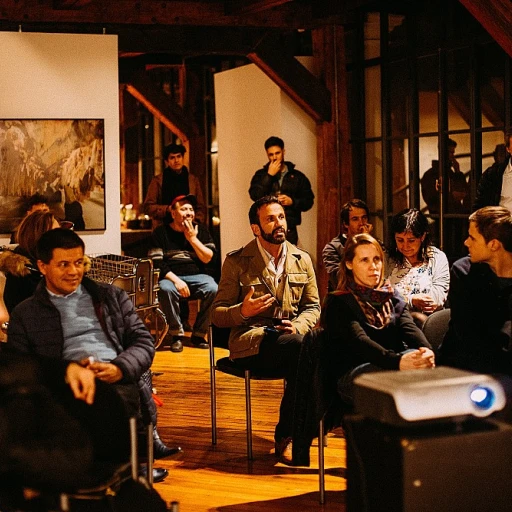
Understanding the Importance of Volunteer Hours
The Role of Volunteer Hours in Medical School Admissions
Volunteer hours play a crucial role in the journey to medical school. Admissions committees at medical schools look for applicants who demonstrate a commitment to service and a genuine interest in the medical field. Volunteering provides pre-med students with valuable clinical experience, helping them to understand the realities of working in healthcare environments. This experience is not only beneficial for the application process but also for personal growth and understanding of the medical profession.
Many medical schools require a certain number of volunteer hours to ensure that applicants have a well-rounded background. These hours can be filled through various volunteer opportunities, ranging from clinical volunteering in hospitals to community service projects. The goal is to gain diverse experiences that will enrich your understanding of patient care and the healthcare system.
It's important to note that the number of volunteer hours needed can vary between schools. Some med schools may have specific requirements, while others may focus more on the quality of the experiences rather than the quantity. Therefore, setting realistic volunteer hour goals is essential for applicants to balance their time effectively between volunteering and other commitments.
For those seeking guidance on how to navigate these requirements, leveraging professional mentoring can be invaluable. Mentors can provide insights into how to find meaningful volunteer opportunities and how to reflect on these experiences in your med school application. For more on building a visionary team through professional mentoring, you can explore this resource.
Setting Realistic Volunteer Hour Goals
Determining Your Volunteer Hour Goals
When considering medical school and the impact of volunteer work on your application, understanding how many volunteer hours you need can feel overwhelming. While there is no fixed number, setting realistic volunteer hour goals requires strategic planning.- Quantitative Expectations: Many medical schools don't specify an exact number of hours required, yet most applicants aim for a substantial amount. A general benchmark is around 100 to 200 hours. This range shows dedication and provides meaningful experiences that will contribute to your personal growth and enhance your school application.
- Focus on Quality, Not Just Quantity: Beyond counting hours, it's essential to focus on gaining quality experiences. Admissions committees appreciate when applicants can demonstrate the impact and learning from their volunteering. Participating in clinical volunteering offers direct insights into the medical field, making your volunteer experiences more valuable.
- Align Goals With Other Commitments: Balancing volunteer work with other responsibilities, such as academics and personal life, is crucial. Calculating how many volunteer hours you can feasibly commit per week while maintaining balance will help fill your pre med schedule effectively.
- Setting Yearly Targets: Breaking down the total hours into manageable yearly or monthly targets makes tracking progress simpler. Whether you are engaging in clinical hours or general volunteer work, this approach ensures that you maintain steady participation.
Finding Volunteer Opportunities in Healthcare
Navigating the Path to Volunteer Opportunities in the Healthcare Arena
Securing meaningful volunteer opportunities in healthcare can significantly enhance your application to medical school. Gaining relevant experience is crucial for aspiring med school applicants, as it provides invaluable insights into the medical field and develops essential skills. Here are some strategic approaches to discover and participate in volunteering opportunities that align with your career goals:- Engage with Healthcare Facilities: One of the most direct methods to gather volunteer hours is by reaching out to hospitals, health clinics, and nursing homes. Many medical facilities gladly accept volunteers for various roles, such as assisting with non-clinical tasks, offering patient support, and aiding administrative work.
- Explore University Resources: Your school’s career center and pre-med advisors are often equipped with information about available volunteer positions. They might have partnerships with local medical institutions or databases of opportunities that can help you systematically track and accumulate the required hours.
- Join Healthcare-Related Organizations: Professional associations and student clubs often organize community service events in the healthcare sector. Participating in these activities not only gives hands-on clinical experience but also provides networking opportunities with peers and professionals.
- Consider Online Volunteer Platforms: Websites such as VolunteerMatch and Idealist list a multitude of volunteering opportunities, including those in the healthcare field. These platforms allow you to filter opportunities based on your interests and availability, facilitating a tailored volunteer experience.
- Leverage Professional Mentorship: Connecting with mentors in the medical field can guide you to worthwhile volunteering experiences. Mentors can provide insights on mastering the art of skill acquisition in professional mentoring and direct you to roles that would amplify your strengths.
Leveraging Professional Mentoring for Volunteer Guidance
Utilizing Mentorship for Strategic Volunteering
Embarking on the path to medical school can feel overwhelming, especially when considering the volunteer hours required by admissions committees. A strategic approach through professional mentoring can greatly benefit those navigating this journey.
Professional mentors already experienced in the med school application process offer tailored guidance to help maximize the value of your volunteering hours. They understand the nuances of clinical volunteering, ensuring every experience aligns with the expectations of medical schools. As both providers of knowledge and support, mentors can assist in pinpointing suitable volunteer opportunities that cater to your interests while meeting pre-med requirements.
Moreover, professional mentors help med school applicants balance volunteer commitments with academic responsibilities. A mentor aids in creating a schedule that accommodates the challenging demands of both volunteering and studies, ensuring time is well-spent and experiences are enriching rather than draining.
Encouraging reflective practice, mentors guide applicants in extracting insights from their volunteering experiences. This reflection is invaluable not only in personal growth but also in strengthening the med school application, showcasing well-rounded, clinically-immersed applicants to admissions committees.
In effect, professional mentors serve as instrumental members of your pre-med journey, ensuring your volunteer work is purposeful, sustainable, and aligned with your ultimate goal of medical school acceptance.
Balancing Volunteer Work with Other Commitments
Maintaining a Balance Between Volunteer Work and Other Obligations
Balancing volunteer work with other commitments is essential, especially for pre med students striving to meet the volunteer hours required by medical schools. These commitments can encompass academic responsibilities, personal life, and preparing for medical school applications. Here are some strategies to help maintain this balance:
- Time Management: Efficient time management plays a crucial role in balancing volunteering with other activities. Creating a weekly schedule that allocates specific time slots for volunteer work ensures that you steadily accumulate necessary hours without neglecting other priorities.
- Prioritization of Activities: Outline which commitments are most important. For instance, attending clinical volunteering opportunities that offer significant clinical experience can be prioritized over other volunteer experiences that offer fewer insights into the medical field.
- Flexibility: Understanding that unexpected events occur is critical. Medical school applicants should be prepared to adjust volunteering hours or switch shifts to maintain academic performance and fulfill other obligations.
- Communication with Volunteer Coordinators: Open communication with coordinators can often allow for more flexible volunteering schedules. This flexibility can help applicants accommodate their school and personal obligations more effectively.
- Utilize Support Systems: Support from mentors, faculty members, and peers can provide guidance on maintaining a well-rounded schedule that incorporates volunteering, academic work, and personal commitments.
Through thoughtful planning and effective time management, medical school applicants can successfully incorporate crucial volunteer experiences into their schedules without compromising other essential commitments. This balance is an essential component of showcasing a well-rounded profile to admissions committees.
Reflecting on Volunteer Experiences for Applications
Reflect and Enhance Your Application
Volunteering isn't just about clocking in hours for your medical school application; it’s an opportunity to reflect and articulate how these experiences have shaped your journey. Admissions committees look for applicants who can translate their volunteer experiences into personal growth and broad perspectives. Consider the following when reflecting on your volunteer work:- Identify Core Experiences: Assess which clinical volunteering experiences were most impactful. Reflect on specific moments that taught you valuable skills or lessons relevant to medical studies.
- Connect Volunteering to Clinical Goals: Analyze how the skills and insights gained can influence your future medical career. Did a particular volunteer experience spark an interest in a medical specialty or patient population?
- Highlight Soft Skills Development: Volunteer work often hones skills like communication, teamwork, and empathy. These are crucial for a successful career in medicine and are attributes that admissions committees value highly.
- Articulate Personal Growth: Reflect on how volunteering hours have changed your perspective or personal attributes. Reliable commitment over time can demonstrate perseverance and a genuine interest in healthcare.
- Prepare for Interviews: Be ready to discuss how these experiences affirm your decision to pursue medical school. Practice articulating stories and takeaways from your volunteering phases in anticipation of med school interviews.













